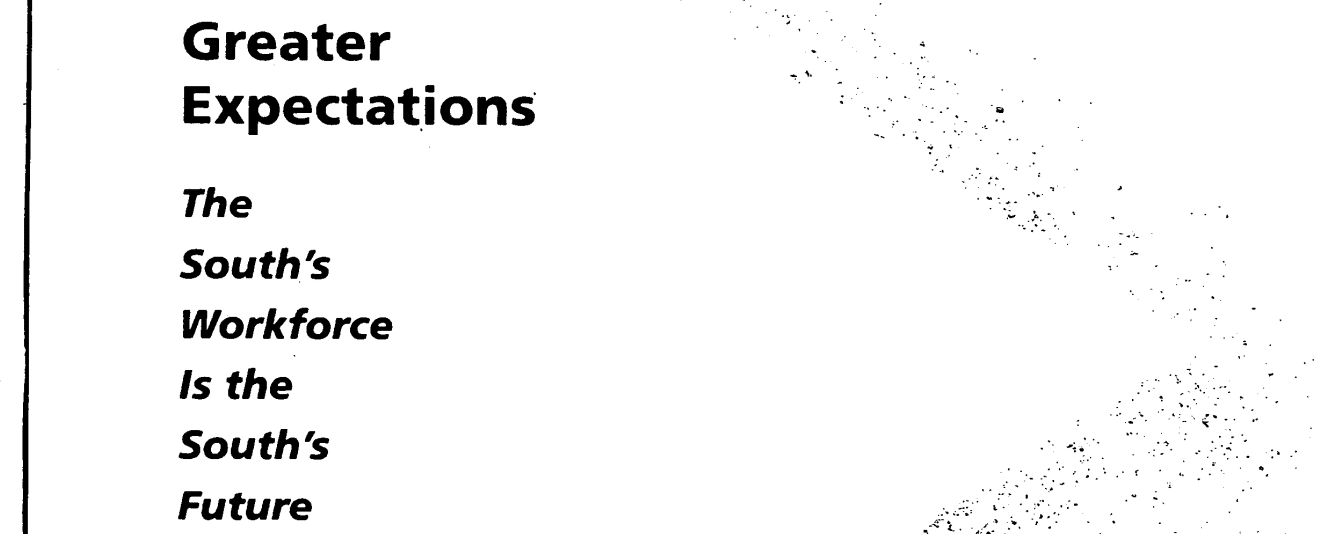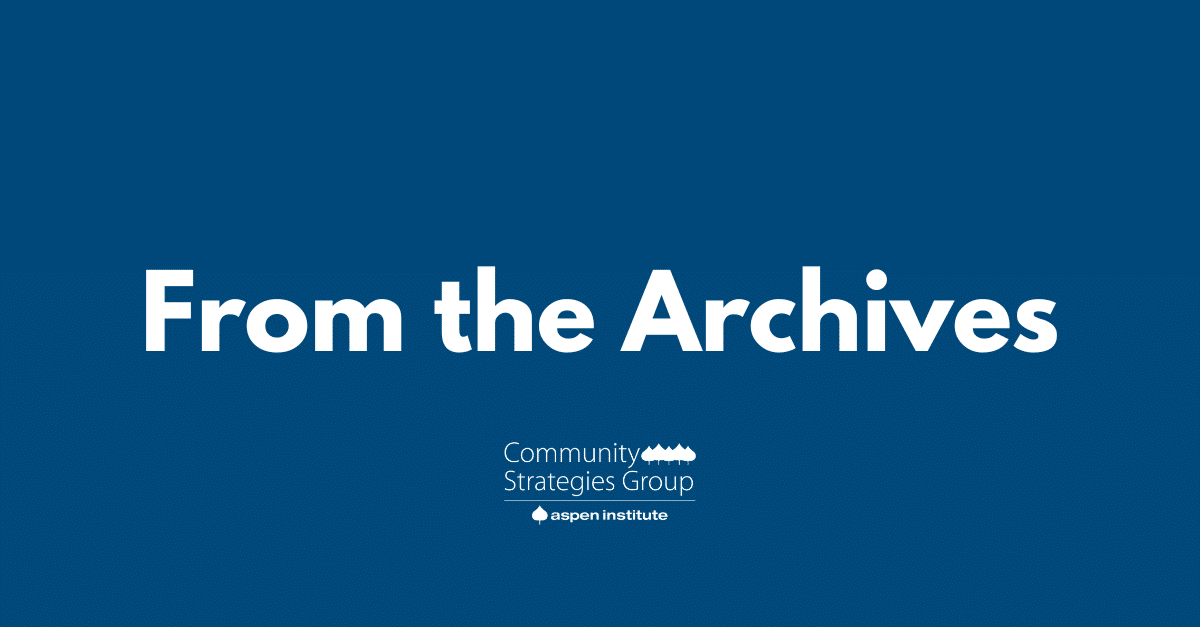Building Regional Strength: A Call to Action
Insights and recommendations to build healthy, thriving rural & Indigenous regions.
Rural Resources, Insights, and Collaborations by Aspen CSG and Partners
Insights and recommendations to build healthy, thriving rural & Indigenous regions.


Paper states Southern workforce should direct policy focus on skill training to keep up with changing economic tides and industries.

Report seeks to examine experiences of Deadwood, SD and Central City, Black Hawk, and Cripple Creek, CO communities in regards to gambling presences in order to foster and promote thoughtful state government policy on small stakes gambling.

This file, titled "BUSINESS FINANCE AS A TOOL FOR DEVELOPMENT," is a 1992 publication by The Aspen Institute's State Policy Program. Authored by Deborah Markley with Katharine McKee, it examines the evolution and best practices of state development finance programs. The document highlights the shift in state economic development strategies from "smokestack-chasing" (subsidized relocation) in the 1960s-70s to fostering homegrown businesses in the 1980s.

The file discusses new partnerships between utilities and industries for rural development. It emphasizes the importance of utilities in stimulating economic development activities, particularly in small towns and rural areas that lack resources to cope with economic change. The document proposes a state-based program where utilities actively partner to encourage modernization of industrial process technologies.

This file is a research paper titled "Exploding Myths About Rural Entrepreneurship" by Terry F. Buss and Mark Popovich. It challenges common misconceptions about rural entrepreneurship using survey data from 1,428 start-up entrepreneurs and employment tax files from five states: Iowa, North Dakota, Michigan, Maine, and Arkansas.

This paper, "Unprecedented Disparities, Unparalleled Adjustment Needs: Winners and Losers on the NAFTA 'Fast Track'," by Michael E. Conroy and Amy K. Glasmeier (August 15, 1992), raises concerns about the distribution of benefits and the magnitude of adjustment costs associated with the proposed North American Free Trade Agreement (NAFTA).

This article, "Leadership Through Partnerships: The National Trust's Main Street Program as a Community Economic Development Tool" by John C. Shepard (1992), examines the Main Street Program of the National Trust for Historic Preservation. The program uses a "grassroots and bootstraps" approach, combining historic preservation with economic development to revitalize historic commercial districts.

This report, titled "The Economic Development Strategies of the Great Plains States," was prepared by the Center for the New West in June 1992. The principal author is Louis D. Higgs, with Claudia Giannetti as contributing author. Funding for the report was provided in part by the State Rural Policy Program of the Aspen Institute and The Ford Foundation, the Denver Regional office of the US Department of Commerce, Economic Development Administration, and the Center for the New West.

This report, "A New Vision of the Heartland: The Great Plains in Transition," prepared by the Center for the New West in March 1992, examines the economic, social, political, and cultural dynamics of the Great Plains region. Funded by The Ford Foundation and the Aspen Institute, it challenges traditional views of decline in the Great Plains, arguing that perceived decline is often a misinterpretation of turbulent change.

This report, titled "State Economic Development Programs and Local Needs: Where Is The Common Ground?", explores the disconnect between the economic development needs perceived by local policymakers in rural Mississippi and the state-level policies designed to address them. The research, funded by the Aspen Institute and the Ford Foundation, was conducted by the John C. Stennis Institute of Government at Mississippi State University in 1992.

This report, "State-Federal Collaboration on Rural Development," by Thomas Unruh and Jay Kayne, published in 1992 by the National Governors' Association (NGA), examines intergovernmental and public-private collaboration in rural development. The NGA, a bipartisan forum for governors, conducts research through its Center for Policy Research, which supported the creation of this report with a grant from the Ford Foundation through The Aspen Institute.

This report, "WHO REPRESENTS RURAL AMERICA? An Analysis of Rural Development Needs, Policy, and Institutions," by Joshua Stein (November 1, 1992), evaluates the effectiveness of the Rural Economic Policy Program (REPP) of the Aspen Institute and explores the need for a new rural development organization